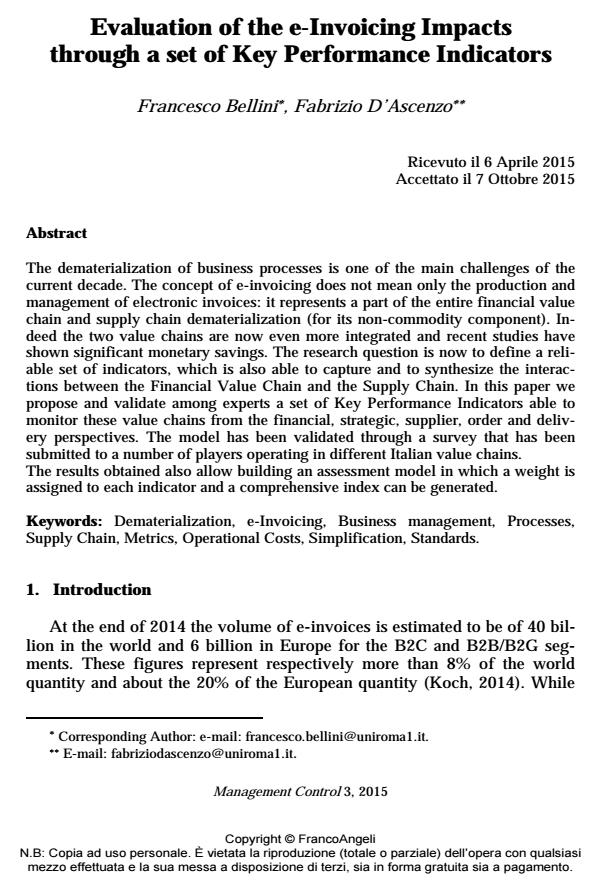Evaluation of the e-Invoicing Impacts through a set of Key Performance Indicators
Journal title MANAGEMENT CONTROL
Author/s Francesco Bellini, Fabrizio D'Ascenzo
Publishing Year 2015 Issue 2015/3
Language English Pages 13 P. 9-21 File size 92 KB
DOI 10.3280/MACO2015-003002
DOI is like a bar code for intellectual property: to have more infomation
click here
Below, you can see the article first page
If you want to buy this article in PDF format, you can do it, following the instructions to buy download credits

FrancoAngeli is member of Publishers International Linking Association, Inc (PILA), a not-for-profit association which run the CrossRef service enabling links to and from online scholarly content.
The dematerialization of business processes is one of the main challenges of the current decade. The concept of e-invoicing does not mean only the production and management of electronic invoices: it represents a part of the entire financial value chain and supply chain dematerialization (for its non-commodity component). Indeed the two value chains are now even more integrated and recent studies have shown significant monetary savings. The research question is now to define a reliable set of indicators, which is also able to capture and to synthesize the interactions between the Financial Value Chain and the Supply Chain. In this paper we propose and validate among experts a set of Key Performance Indicators able to monitor these value chains from the financial, strategic, supplier, order and delivery perspectives. The model has been validated through a survey that has been submitted to a number of players operating in different Italian value chains. The results obtained also allow building an assessment model in which a weight is assigned to each indicator and a comprehensive index can be generated.
Keywords: Dematerialization, e-Invoicing, Business management, Processes, Supply Chain, Metrics, Operational Costs, Simplification, Standards
- Accounting Information Systems in an Open Society. Emerging Trends and Issues Daniela Mancini, in MANAGEMENT CONTROL 1/2016 pp.5
DOI: 10.3280/MACO2016-001001
Francesco Bellini, Fabrizio D'Ascenzo, Evaluation of the e-Invoicing Impacts through a set of Key Performance Indicators in "MANAGEMENT CONTROL" 3/2015, pp 9-21, DOI: 10.3280/MACO2015-003002